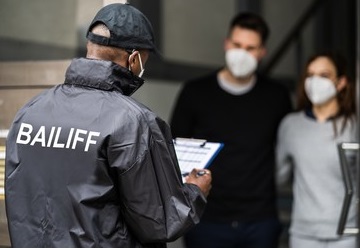High Court Enforcement Officers can take goods to the value of the debt including their costs and court fees. They cannot take essential items such as tools of the trade, essential machinery and equipment necessary for your business to continue.
This applies to an individual sole trader debt or company debt.
A private debt collector not acting on behalf of a court or authorised by a court has no right to take any items
Neither a Court Certified Bailiff or Debt Collector can take essential items in lieu of payment of a debt from either business or private premises.
Essential items in this case include clothes, fridge, cooker, beds -any items required to live.
Nor can they take possessions belonging to a partner or items which are subject to a lease or hire purchase agreement-such as vehicles, leased computers etc. It is important that you are able to prove ownership.
Bailiffs must give 7 days notice of their intention to visit your premises-in those circumstances it is prudent to ensure that documents proving ownership of vehicles , leased or hire equipment are to hand.
It is advisable to park private vehicles away from the premises-in order to avoid attempts by bailiffs to seize them.
Enforcement officers cannot visit a company director's home to claim personal assets as payment for a debt.
High Court Enforcement officers or Certified Court Bailiffs will often use a right to implement a "Controlled Goods Agreement"-which effectively uses goods or assets as security until the debt is paid.
